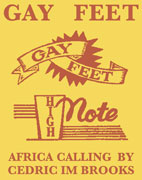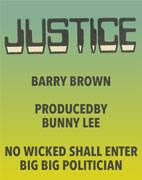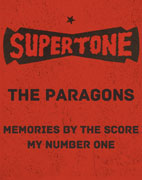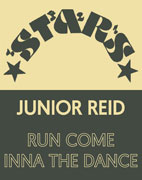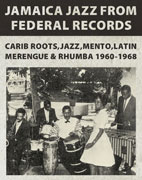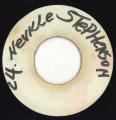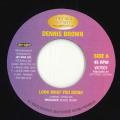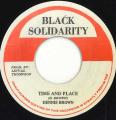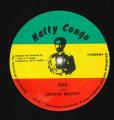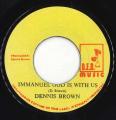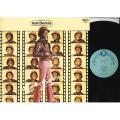Dennis BrownText by Harry Hawks
The 'Crown Prince Of Reggae', Dennis Emanuel Brown, was Jamaican music's most consistently popular performer. Many artists achieve fame and adulation after their death but Dennis Brown earned an unparalleled amount of love and devotion during his life time.
Dennis Brown
| Real Name | Dennis Emanuel Brown |
| Born | Feb 1, 1957 |
| Died | Jul 1, 1999 |
| Place of Birth | Kingston Jamaica |
| Related Artist(s) |
"I was the first man to record Dennis Brown. I used to know his bigger brother... a comedian. Dennis used to sing 'Solomon' on Byron Lee's shows. He was a little youth talking about he's a big man and the vibe just went around and we became friends. His first recording... he was no more than ten or twelve years old... was 'Obsession' but we changed the title to 'Lips Of Wine'. Derrick Harriott
Dennis went on to work for a number of Kingston's top record producers. He recorded two albums for Clement 'Coxsone' Dodd(CS Dodd), 'No Man Is An Island' and 'If I Follow My Heart', and an amazing number of classic singles including 'Cheater' for Clive Chin at Randys, 'It's Too Late' and 'Song My Mother Used To Sing' for Herman Chin Loy, 'What About The Half' and 'Let Love In' for Phil Pratt, 'If I Had The World' and 'One Day Soon' for Prince Buster and 'Set Your Heart Free' for the Tafari Syndicate.
"I did quite a few recordings at this time for other producers. With Matador I did 'Things In Life' and 'Baby Don't Do It' and I did one for GG(Alvin Ranglin) called 'Don't You Cry' then I went and did two numbers for Prince Buster."Dennis Brown
Bunny Lee(Bunny Striker Lee) recalled how, in these early stages of his career, Dennis was taught his craft by two of Jamaica's greatest ever vocalists.
"He was smart! We did a whole heap of work me and D. Brown. He was a great human being too...Dennis Brown. It was Slim Smith taught Dennis Brown to play guitar... when they were living in two big yards. Slim lived on Orange Street on the corner behind Coxsone's Record Shop and Dennis lived in the big yard on North Street. Dennis Brown used to call Delroy Wilson The Teacher and that's why Dennis Brown was so versatile because Slim Smith and Delroy Wilson taught him. Delroy Wilson and Slim Smith... great artists. Two of the greatest artists... it's them did bring and teach Dennis Brown." Bunny Striker Lee
Joe Gibbs(Joel Gibson) had first employed Winston 'Niney The Observer' Holness(Winston ‘Niney’ Holness) as in-house producer in 1969 and Niney was at the controls for Joe in 1972 when Dennis sang 'Money In My Pocket' for the first time. An incredible run of hit records for Niney's own Observer label followed where Niney's dynamic productions with The Soul Syndicate band placed the youthful Dennis Brown in a thrilling new context. Already described as a "youthful veteran" his voice "amazingly assured and his performances achingly felt" Dennis continued to "mix both cultural themes and the most romantic of lover's laments" but his own compositions became increasingly concerned with 'reality' themes and universal love. He made his first Rastafarian inspired records with Niney including the unapologetic 'Africa We Want To Go' and 'Why Seek More' but it was the more traditionally inclined 'Westbound Train' that proved to be the biggest Jamaican hit of summer 1973. Dennis was voted Top Male Vocalist in Swing magazine towards the end of that year.
Dennis toured the UK for the first time in the summer of 1974 as part of a Jamaican Showcase package that included Al Brown, Sharon Forrester, The Maytals and Cynthia Richards. Towards the middle of the decade Dennis began to produce himself beginning with one of his best, most heartfelt records, 'Satisfaction Feeling', where he was backed by The Heptones. It was released on the D'Augular's Sounds label but "nothing too tough happened with that really... that was just a start for me" but it did indicate the direction he would take when he established his own DEB (Dennis Emanuel Brown) label in the winter of 1976/77.
He returned to work with The Mighty Two, Joe Gibbs(Joel Gibson) and Errol Thompson, on the classical 'Visions Of Dennis Brown' album which was released in 1977. Its combination of conscious themes and love songs echoed the dread mood of the times and it proved to be Dennis' most successful outing so far. Although it was originally available in England as an expensive 'pre-release' import, 'Visions' went straight into the UK reggae charts and remained there. It was voted reggae album of the year by both Black Echoes and Melody Maker.
"Through his appointed field: music, he has realised its potential of communication/education and the role it should assume in this age as an expression for self-definition and self-determination... His visions are revealed through Haile music (roots rhythms and revolutionary lyrics) and unveils the Ire Soul of Dennis Brown."
Patrick Griffiths
In 1978 The Mighty Two released an update of 'Money In My Pocket' on a Joe Gibbs twelve inch 'discomix' where Dennis' vocal was seamlessly segued into a deejay counteraction from George Nooks as Prince Mohammed. 'Money In My Pocket' was Dennis' biggest crossover hit reaching Number 14 on the UK National Charts the following spring when it was released on London's Lightning Records.
Two years later Dennis signed with A&M Records. His first long playing release for the label, 'Foul Play' produced by Clive Hunt and Joe Gibbs, mixed love and reality themes and included the brooding 'The World Is Troubled'. His next A&M release, 'Love Has Found Its Way' co-produced by Willie Lindo, Joe Gibbs and Dennis Brown, was released in 1982. This soul influenced album was a big hit and the smooth, sophisticated title track reached the UK National Charts and the USA Soul Charts. The entire album was a triumph and was later described in 'Reggae The Rough Guide' as "the nearest a reggae album can get to the international pop audience without losing something very vital in the process". Dennis' last album to be released through A&M, 'The Prophet Rides Again', was produced by Joe Gibbs, Errol Thompson and Dennis Brown. Released in 1983 it featured a blend of commercial funk based rhythms and roots tracks and included the beautiful 'Historical Places'.
As each new genre or rhythmical style came along Dennis Brown adapted his songs to fit... and it worked every time. At the same time that he was wooing international audiences with his A&M releases he could also be found riding high on the crest of the dancehall wave at home in Kingston. The Joe Gibbs produced 'A Little Bit More' and 'Your Love's Got A Hold On Me' were two faultless examples of Dennis' total mastery of the new style. His records for Sly & Robbie's Taxi label, 'Hold On To What You Got', 'Sitting And Watching', 'Have You Ever Been In Love Before' and, in particular, 'Revolution', were all massive hits. These early examples of the digital approach packed a serious rhythmic and lyrical punch and presaged Dennis' work with King Jammy(Lloyd James). The album, known as both 'The Exit' and 'History', was imbued in the musical traditions that Jammy and Dennis had helped to establish during the previous decade. Dennis Brown's records from this period demonstrated the creative heights that could be achieved when the latest technology was combined with talent and experience.
He was a man who loved to sing and Dennis Brown sang and he sang and he sang ... it is an inarguable fact that he is responsible for more reggae classics than any other single artist in the history of Jamaican music. He was adored and emulated like no other singer and, for over twenty five years, his standing in the world of reggae was second to none but he was rarely appreciated or acknowledged by the outside world. Anyone who wants to understand reggae music only has to understand Dennis Brown... everyone in the reggae business wanted to emulate the success of Bob Marley but every reggae singer wanted to sound like Dennis Brown and his popularity with the reggae audience should serve as an explanation to what the music is all about and what it means to that audience. He loved his people and they loved him back.
"It is safe to say that no other Jamaican artist has enjoyed such a rich and musically satisfying career."
Dennis Brown died 1st July 1999 of respiratory problems and was given a state funeral in Kingston, Jamaica on 10th July. He was buried in Heroes Circle where he rests in peace. His spirit lives on forever in his music.
Date Added: Apr 03, 2020
Copyright (C) 2024 Dub Store Sound Inc.
Related Item(s)
| Dennis Brown, Aswad - Promised Land(Simba UK)VG++/Marks |
B side) Aswad - Cut No. 144,000 / More Dub
| Dennis Brown - Immanuel God Is With Us(DEB)VG/SEW/WOL |
B side) DEB Players - Version











